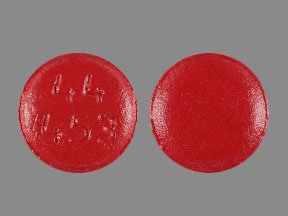Phenylephrine and Alcohol/Food Interactions
There is 1 alcohol/food/lifestyle interaction with phenylephrine.
Phenylephrine Caffeine
Moderate Drug Interaction
MONITOR: Coadministration of two or more sympathomimetic agents may increase the risk of adverse effects such as nervousness, irritability, and increased heart rate. Central nervous system (CNS) stimulants, particularly amphetamines, can potentiate the adrenergic response to vasopressors and other sympathomimetic agents. Additive increases in blood pressure and heart rate may occur due to enhanced peripheral sympathetic activity.
MANAGEMENT: Caution is advised if two or more sympathomimetic agents are coadministered. Pulse and blood pressure should be closely monitored.
References (7)
- Rosenblatt JE, Lake CR, van Kammen DP, Ziegler MG, Bunney WE Jr (1979) "Interactions of amphetamine, pimozide, and lithium on plasma norepineophrine and dopamine-beta-hydroxylase in schizophrenic patients." Psychiatry Res, 1, p. 45-52
- Cavanaugh JH, Griffith JD, Oates JA (1970) "Effect of amphetamine on the pressor response to tyramine: formation of p-hydroxynorephedrine from amphetamine in man." Clin Pharmacol Ther, 11, p. 656
- (2001) "Product Information. Adderall (amphetamine-dextroamphetamine)." Shire Richwood Pharmaceutical Company Inc
- (2001) "Product Information. Tenuate (diethylpropion)." Aventis Pharmaceuticals
- (2001) "Product Information. Sanorex (mazindol)." Novartis Pharmaceuticals
- (2001) "Product Information. Focalin (dexmethylphenidate)." Mikart Inc
- (2002) "Product Information. Strattera (atomoxetine)." Lilly, Eli and Company
Switch to consumer interaction data
Phenylephrine drug interactions
There are 201 drug interactions with phenylephrine.
Phenylephrine disease interactions
There are 4 disease interactions with phenylephrine which include:
More about phenylephrine
- phenylephrine consumer information
- Check interactions
- Compare alternatives
- Pricing & coupons
- Reviews (24)
- Drug images
- Latest FDA alerts (5)
- Side effects
- Dosage information
- Patient tips
- During pregnancy
- Support group
- Drug class: decongestants
- Breastfeeding
- En español
Related treatment guides
Drug Interaction Classification
| Highly clinically significant. Avoid combinations; the risk of the interaction outweighs the benefit. | |
| Moderately clinically significant. Usually avoid combinations; use it only under special circumstances. | |
| Minimally clinically significant. Minimize risk; assess risk and consider an alternative drug, take steps to circumvent the interaction risk and/or institute a monitoring plan. | |
| No interaction information available. |
See also:
Further information
Always consult your healthcare provider to ensure the information displayed on this page applies to your personal circumstances.


